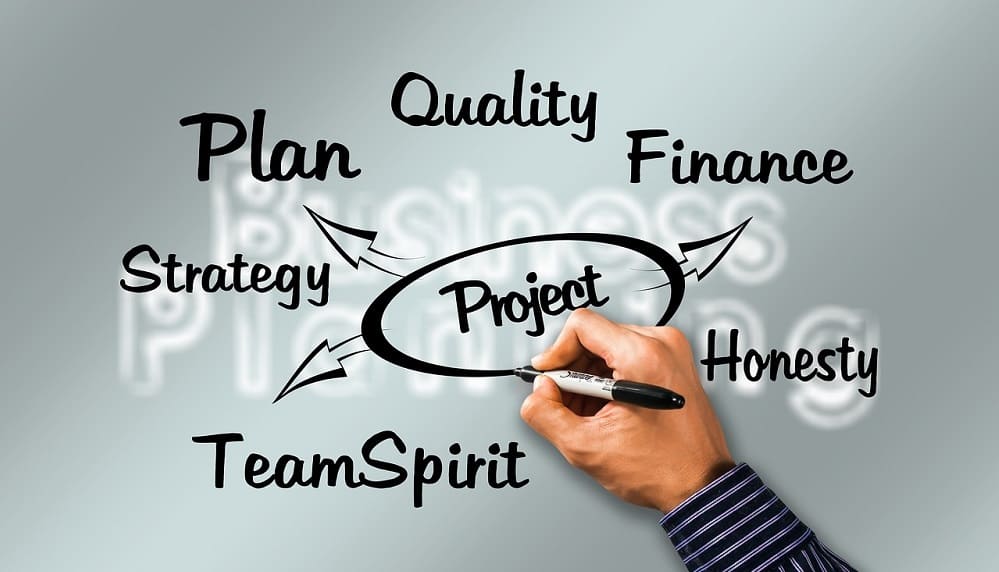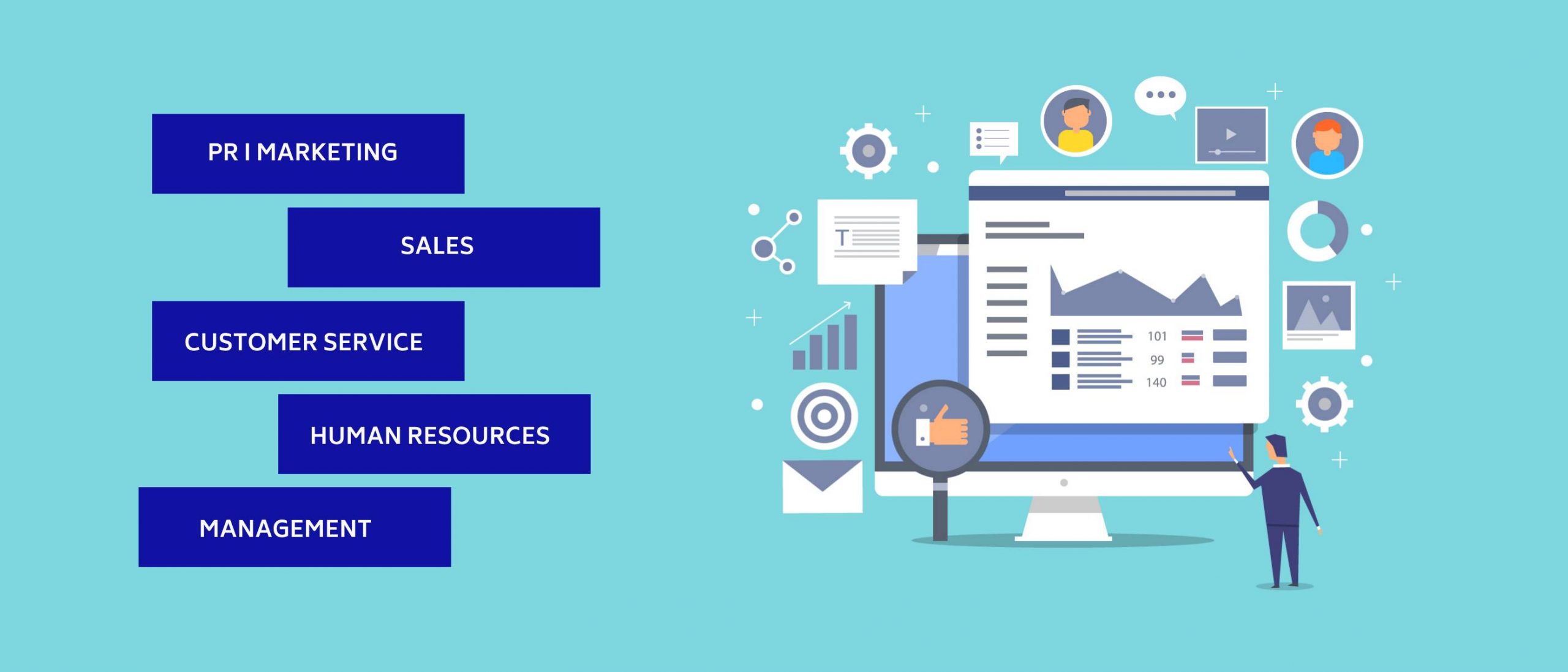When it comes to customer relationship management (CRM), there are a lot of different definitions floating around. And understandably so, CRM is an incredibly comprehensive and customizable term that can encompass everything from sales and marketing to customer service and support. So, how do you define the scope of CRM for your business? In this blog post, we’ll explore some key considerations when defining the CRM scope for your organization. Stay tuned!
Table of Contents
What Is the Scope of CRM?
CRM is a term that refers to the various methods and technologies used to manage customer interactions. In recent years, CRM has become an increasingly important aspect of business, as companies seek to improve their relationships with customers and better understand their needs.

The scope of CRM includes a wide range of activities, from managing customer contact information to developing personalized marketing campaigns. In order to be effective, CRM must be tailored to the specific needs of each business. As such, the scope of CRM can vary greatly from one company to the next.
However, there are certain core elements that are essential for all successful CRM initiatives. These include the ability to capture and store customer data, the ability to track and analyze customer interactions, and the ability to automate customer-facing processes.
By understanding the scope of CRM, businesses can be better equipped to develop strategies that will improve their relationship with customers and help them grow their businesses.
Importance of Defining the Scope of CRM
There are more worthwhile factors addressing the question Why is CRM scope necessary? They also outline what will happen and what won’t, and they assess future success.
Focus on Business Operations
The lack of user support is a sign that things are going in the wrong direction. The project can typically be considered a failure. If all pertinent business operations covered by a new CRM project are recognized, clarified, and defined, such a result can be avoided.
Accordingly, the initial phase of simplifying the CRM system is scoping. The current company operations are highlighted, along with how innovation helps to carry them out. Additionally highlighted is the relationship with other structural units.
Project Definition
It goes without saying that developing a CRM project requires the collaboration of many important customers and contractors. Typically, a dedicated team or group is formed to establish the goal and parameters. A paper outlining the terms of reference is typically the result of such collaboration.

To give a clear picture of the aim, all potential analytical facts, costs, risks, requirements, etc. are established. The CRM project scope is in charge of the aforementioned process by assessing current activities and considering how they might be upgraded in the future.
Software
Certain software solutions won’t work for large businesses with complex requirements. It follows that identifying the right software is just as important for businesses as defining their tasks.
For instance, your workforce is restricted to 50 people, yet the CRM system you’ve picked is built for large businesses and has a variety of features. Since you won’t even use half of the product, you won’t really need it.
As a result, your requirements have to be on par with or somewhat less than what the tool’s functionality can provide. The best method to get rid of these differences and choose a real fit for your needs is through scoping.
Nature of Non-Committal
The project scoping process does not bind you or your company to any commitments or actions. This process can be carried out by in-house staff, external parties represented by CRM partners or consultants, etc.
It’s even feasible that certain conditions will cause you to delay the technology’s actualization for a while. However, it would be incorrect to suggest that the CRM project’s scope is a time waster.
The study yields a wealth of insightful information that will help lay a strong basis for future attempts. A scenario that can occur calls for switching to another product on the market if your CRM partner is unable to meet newly discovered requirements.
How to Define the Scope of CRM
There have been numerous theoretical discussions regarding the importance of CRM scope. It’s time to describe a brief practical action guide right now.
Set Your Parameters
It is easier said than done to specify the CRM scope software. In principle, you may be aware that you want all of your staff to utilize it, but how does it actually work in practice? We’ve created a specific list of questions and measures to keep you on track because inquiries like these can build up rapidly.
Questions You Need to Ask Yourself
- Will the CRM’s focus be wide or specific? Understanding how many individuals the solution would impact can help you make this decision.
- Will the system be used by every department or just a select few? This might help you decide if you need a big, powerful CRM or a small, targeted one. It will also have a significant impact on the cost because most software is charged per user license.
- Will you implement the complete solution simultaneously or gradually? You should also ask your seller this question. As you all become accustomed to the method together, doing it all at once keeps everyone on the same page and fosters teamwork. If the system isn’t a good fit or doesn’t work as you expected, staggered implementation can reduce risk and cost.
- How much can you spend? Creating a budget could be difficult without understanding how much CRMs typically cost. For a sense of the market so you can start creating an informed budget, check out our price guide. You may simply create a rough estimate for your company as CRMs are often based on a per-user-per-month or per-user-license basis.
Questions You Need to Ask Vendors
- How long does it typically take to install this solution? It’s crucial to have a broad concept of how long it will take to go through system training because the time employees spend learning to utilize the system (and not selling or generating leads) results in higher human expenditures.
- What materials for training are included in the base price? What is the cost of additional training? As you’re getting set up with the system, almost all software suppliers provide initial training and customer support; but, after that, additional training is usually charged for.
- What types of resources for customer support do you provide? Instead of providing live chat or instant phone help, some suppliers solely offer customer support tickets. Knowing what they offer upfront will help you avoid unpleasant surprises and disappointments later.
- How seamlessly does this CRM work with other platforms? It may be crucial to be able to combine the systems if you use an enterprise resource planning (ERP) system, learning management software (LMS), or other types of corporate software. Integration describes the simple and smooth transfer of data from one system to another. Before choosing a CRM, make sure it is compatible with other programs as not all CRMs are.
Obtain Data from the Proper Departments
It’s time to gather your unique requirements now that you understand the fundamentals. Inquire about the demands and objectives of the CRM from the various departments in your company. In addition to instructions on how to create key performance indicators (KPIs) for your organization, the scope of your CRM should specify how its implementation will affect the infrastructure and procedures of your company.
Make sure everyone whose job may be impacted by the changes is aware of your intentions to upgrade or establish a CRM system. Here are some queries to pose to various departments to ascertain whether or not they will engage with the new CRM.

Sales and Marketing
Get a comprehensive understanding of how the introduction of a CRM might affect your lead engagements by speaking with the sales and development teams. To ensure a smooth transition, find out what kind of organizational and consumer interaction methods they already employ.
CRM can be very beneficial to sales and marketing teams. However, they are frequently not implemented correctly. Usually, this is caused by a lack of communication and training. You may minimize some of these communication gaps and make sure you choose a system that they’ll actually utilize by speaking with sales staff directly before a CRM is chosen.
- Types of campaigns: One of CRM’s key advantages is the ability to run multi-channel marketing campaigns. It enables your marketing team to organize all of their efforts into a single, well-organized framework to manage campaigns across email, social media, and other channels.
- The current way prospective clients contact your sales teams: CRM includes call center functions, chatbot-enabled automated email marketing, and other more cutting-edge approaches to client interaction. Ask your sales team whether they would like to use multichannel marketing; chances are, they would be eager to do so.
- How they record and keep track of leads: CRM can help, whether the solution is a manual Rolodex on paper or a sophisticated contact management system. You can save time and effort by using CRM platforms that frequently immediately interface with applications like G Suite or Outlook. This eliminates the need for manual data entry.
- The number of leads they have contact details: Determine your demands in advance because some CRM pricing plans have a cap on the number of contacts you can keep or at least a price rise over a specific quantity.
Customer Service
- What is your system’s procedure for logging issues, cases, or complaints? Determine how complaints are handled, whether it’s with paper and pen or a third-party ticketing system, so you may question a provider about the integration or transfer of that data. A CRM’s built-in customer service ticket functionality should be able to take the place of (and even outperform!) any current system your service team is currently using.
- What steps must be taken to escalate a complaint? Do your representatives need to email five persons and obtain written approval before passing on a customer complaint to a higher level of knowledge? CRMs provide well-defined routines for this process, making it simpler and more productive.
- Currently, how does your customer service team communicate? For customer relationship management teams, communication is essential. If you’ve been employing a low-tech method, CRM can improve your communications. CRMs can frequently link with or replace chat platforms like Slack with internal systems, preventing your staff from switching between screens and losing concentration.
Make Assessments
You must confirm that your requirements align with the capabilities provided by a certain product in order to select the best CRM platform for your business. An excellent place to begin is by reviewing the project’s needs. The responses to some of the queries above as well as the specific features to satisfy them should be included in this requirements document.
You should have completed this step with a business needs specification and a system design document. Share these reports with the key stakeholders in your organization and solicit feedback. And, to avoid getting off-topic, you should refer to it regularly during implementation.
After you’ve determined your requirements, you can go to the comparison stage. When you compare vendors based on their characteristics, you can measure their performance in the areas where you need them to succeed. It also greatly simplifies the process of narrowing your alternatives and creating a shortlist. Once you’ve narrowed down your list of vendors, you may interview them using the questions from the previous section as well as our buyer’s guide to finding your best fit.
Final Thoughts
CRM is a vast system that can include everything from sales and marketing to customer service and support. However, in order to get the most out of your CRM, it’s important to define the CRM scope and use cases specific to your business. The team at Magenest can help you do just that – contact us today to learn more about how we can help you harness the power of CRM for your organization.











